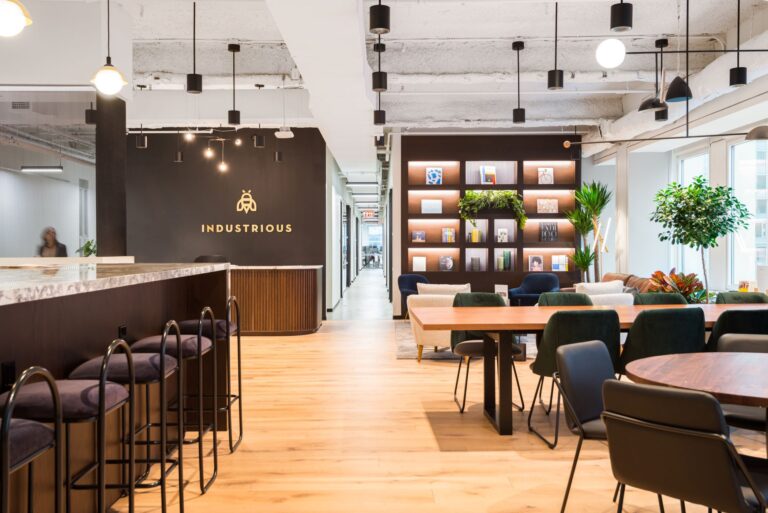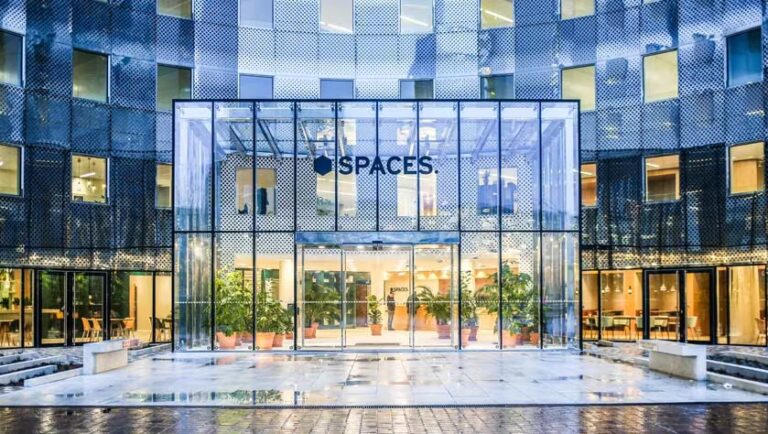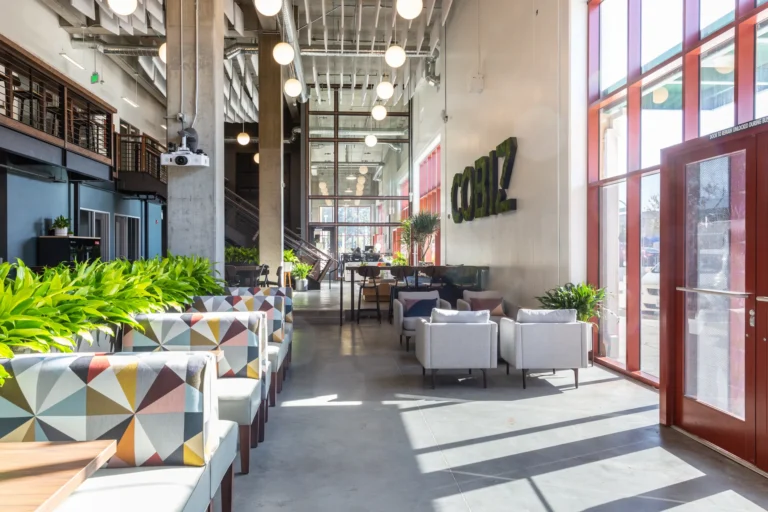Shared Office Rental Complete Guide to Flexible Workspaces in 2025
Shared office rental refers to workspace arrangements where individuals, startups, or teams rent a portion of an office (desks, shared open-plan space, dedicated desks, or private suites) in a facility operated by a provider. Unlike a traditional long-term lease of an entire floor or building, shared office rental is typically flexible, shorter-term and includes shared amenities such as meeting rooms, reception, utilities, and networking opportunities. According to one description, “office sharing is a concept that allows companies … to share or rent the workstations or self-contained units to smaller companies looking for flexible workspace.”
In the current business environment the demand for shared office rentals has grown significantly. Because many businesses now adopt hybrid work models, want to reduce full-floor commitments, or seek professional workspace without large overheads, shared office rental becomes an ideal solution. It sits between home-office working and full commercial lease.
How Shared Office Rental Differs from Traditional Office Leasing
Traditional commercial leases often lock companies into long-term commitments (3-5 years or more), large upfront fit-out costs, and significant fixed overheads (rent, utilities, maintenance). Shared office rental, in contrast, offers more flexibility-often month-to-month or short-term, with many services included and ability to scale up or down. Providers such as Regus highlight that customers can rent hot-desks, dedicated desks or private offices in shared facilities, with minimal minimum term.
Another key difference is the community and service orientation: shared office rentals typically include amenities, reception, cleaning, networking and shared infrastructure-all of which reduce operational burden for tenants and allow them to focus on core business.
Benefits of Shared Office Rental
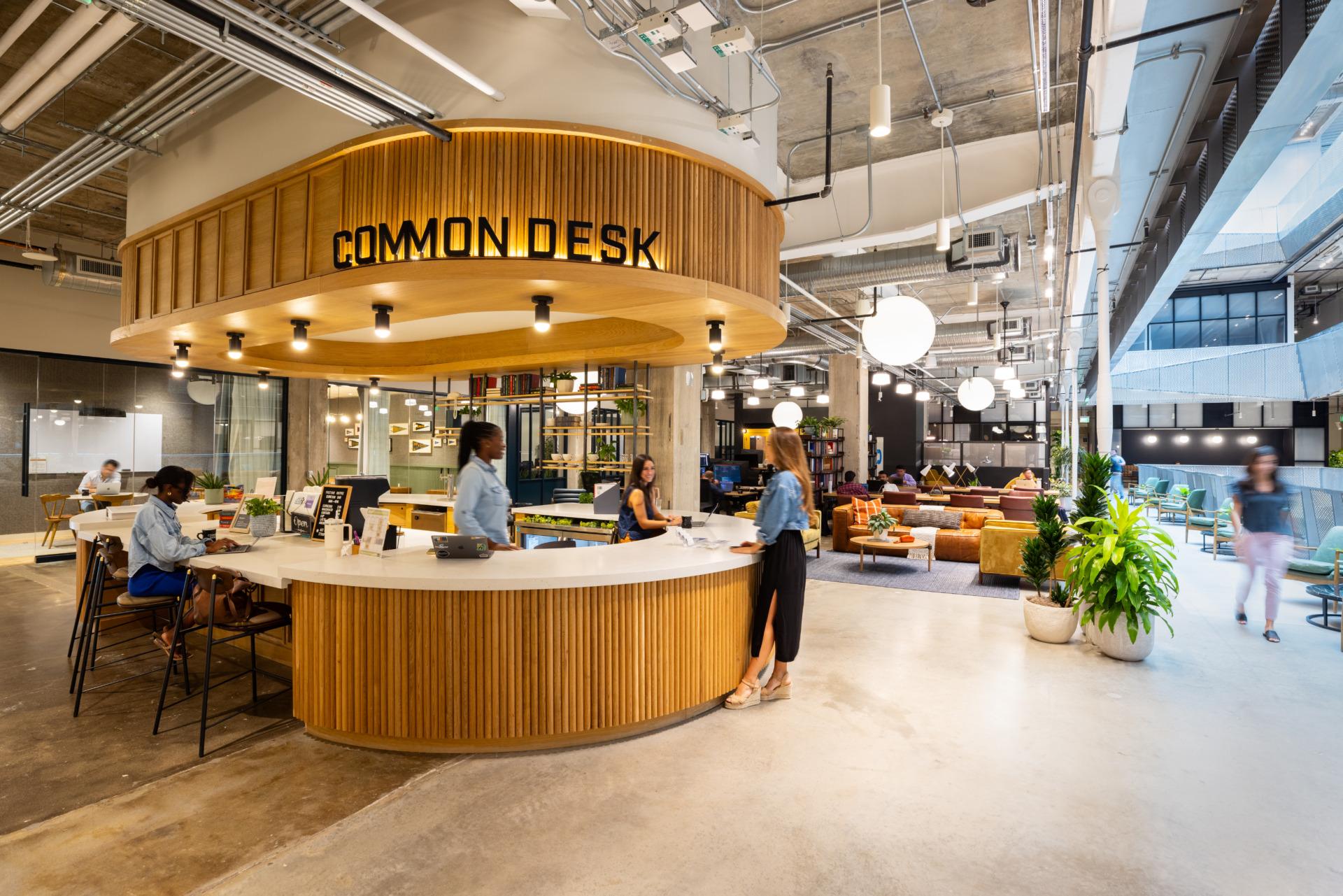
Lower Cost & Reduced Risk
One of the chief benefits of shared office rental is lower cost and reduced risk. By renting shared space rather than committing to an entire lease, companies avoid large upfront costs (fit-out, deposit, long-term lease) and fixed overheads. For smaller businesses or startups, this means cleaner cash-flow and less capital locked into property. Moreover, if your team size changes or your strategy adapts, you have flexibility to scale rather than being locked in. For example, FlySpaces notes that shared office solutions in Jakarta provide cost-effective alternatives to traditional leases.
Flexibility and Scalability
Shared office rental allows firms to adapt to changing headcount, hybrid schedules or project-based work. If you start with a dedicated desk for two people and later expand to a private suite, the provider often accommodates this. Conversely, if you downsize you can reduce your footprint without the exit penalties common in long leases. Shared office rental solves the problem of uncertain future space needs by offering agility and freedom.
Professional Infrastructure & Amenities
A shared office facility typically includes high-quality infrastructure: fast internet, meeting rooms, communal lounges, printing services, reception, event zones, and sometimes cafés or wellness areas. For businesses that want a professional environment but don’t want to manage facilities themselves, this is a strong benefit. For example, the provider The Executive Centre highlights professional shared workspace solutions in prime locations with full amenities.
Technology-Enabled Experience
Modern shared office rental providers integrate technology: mobile apps to book desks/meeting rooms, hot-desking platforms, usage analytics, coworking community networks, and remote access tools. These technological features enhance the user experience and optimise space usage-important when your business is dynamic. For example, providers like Coworker highlight how users can search, reserve and compare shared workspaces online.
Five Real-World Shared Office Rental Options
Here are five prominent shared office rental products you can evaluate. Each is described with detail, benefits and use-case.
1. GoWork Shared Office Rental (Indonesia)

Details: GoWork offers a network of flexible shared workspaces across Indonesia (Jakarta, Tangerang, Bali, Surabaya, Medan) including coworking, dedicated desks, private offices and enterprise solutions.
Benefits: For businesses in Indonesia, this rental solution provides access to a shared office environment with local convenience, networked locations, flexible terms and scalable plans. It solves the challenge of finding professional workspace across multiple cities without independent leases in each.
Use Case: A digital marketing agency based in South Tangerang wants to provide a Jakarta-based workspace for client meetings. They rent shared office desks at GoWork’s BSD City location, benefit from reception services and move up to a larger private office as the team grows.
Where to Rent:
Secure a Shared Office Rental at GoWork →
2. Regus Shared Office Rental (Jakarta, Indonesia)
Details: Regus offers shared office rental in Jakarta with hot desks, dedicated desks and private offices. Prices start from approximately IDR 550,000 per person per month for desks and include short-term usage options by the hour or day.
Benefits: Because the provider supports hourly, daily, monthly access, they provide high flexibility for individuals or teams. The global brand ensures consistent quality, infrastructure and access to a wider network. It solves the problem of professional office environment with minimal commitment.
Use Case: A freelance consultant wants to work in a professional setting in central Jakarta one or two days a week. They book a hot desk at Regus, access meeting rooms when needed, and only pay for usage when they actually work.
Where to Rent:
Explore Shared Office Rental at Regus Jakarta →
3. The Executive Centre Shared Office Rental (Asia-Pacific)
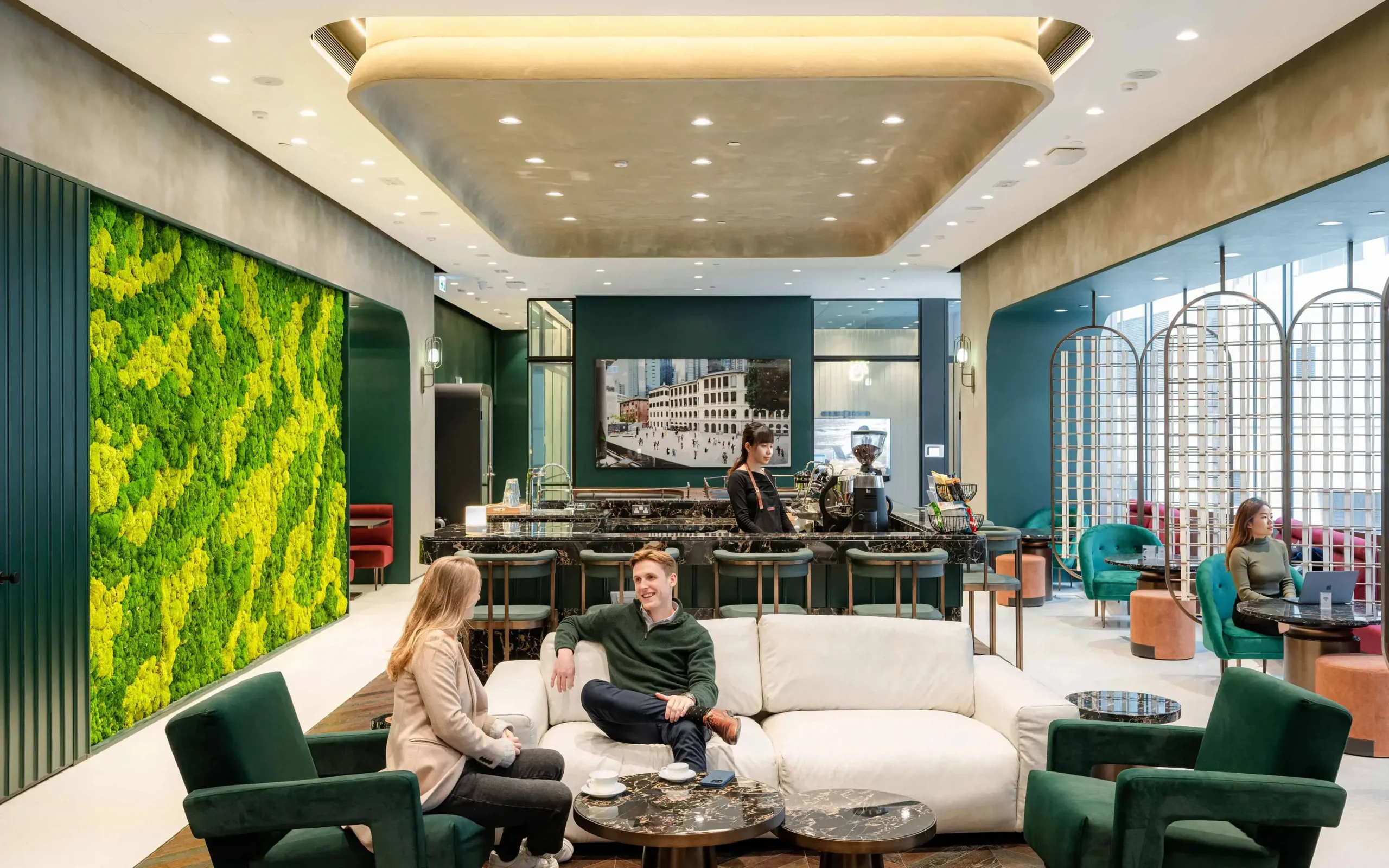
Details: The Executive Centre offers shared office rental (coworking, dedicated desks, day offices) in premium locations. For example, Jakarta listings show hot-desking city passes from IDR 1,750,000 per month and day-offices from IDR 3,150,000 per month.
Benefits: This product offers premium environment, high-end fit-out, global access and flexibility without long-term lease obligations. This solves the problem of professional image for executives or client-facing companies without long-term real-estate burden.
Use Case: A boutique legal advisory firm needs a high-end workspace in Jakarta for client meetings and team sessions but does not want to commit to a multi-year lease. They rent a day-office membership at The Executive Centre for 6 months, paying for professional service and scalability.
Where to Rent:
Join Shared Office Rental Membership at The Executive Centre →
4. Spaces Shared Office Rental (Global Network)
Details: Spaces (by IWG) offers shared office rental globally: private desks, coworking memberships, dedicated desks, and offices accessible across their worldwide network. Spaces
Benefits: Ideal for companies with distributed teams or international mobility needs. This rental product gives you access to multiple locations under one membership, enabling flexibility and consistency. It solves the problem of managing disparate leases in different markets.
Use Case: A regional tech startup headquartered in Jakarta wants to expand into Europe. They join Spaces membership globally, start at the Jakarta location, then use their plan to access a Spaces office in Amsterdam when their European pilot begins.
Where to Rent:
Get Shared Office Rental Access at Spaces →
5. HQ Shared Office Rental (Jakarta, Indonesia)
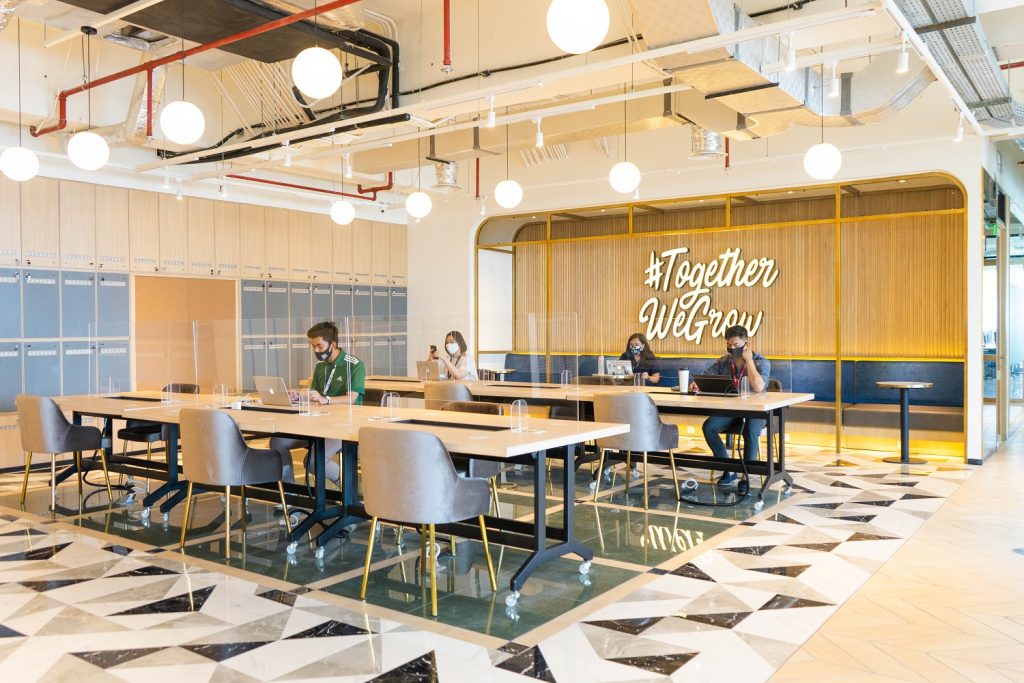
Details: HQ provides shared office rental solutions in Jakarta including coworking spaces, offices, meeting rooms and virtual offices. Locations cover several big business districts.
Benefits: For companies looking specifically in Jakarta with flexible terms, HQ offers options tailored to rental and servicing needs. It solves the challenge of finding locally-focused shared office rental with strong support in Indonesia.
Use Case: A remote team in Indonesia needs a base in the capital for gatherings and client meetings every month. They rent shared office rental desks at HQ, pay only when needed, and avoid long-term lease risks.
Where to Rent:
Book Shared Office Rental at HQ Jakarta →
How to Choose and Rent Shared Office Space
Step 1: Define Your Space Needs and Budget
Start by calculating how many seats or offices you need, how often you will use the space (full-time, part-time, occasionally), preferred location, amenities required (meeting rooms, reception, printing, networking) and budget. Because shared office rental is flexible, you should choose a plan that reflects usage rather than over-committing.
Step 2: Evaluate Location, Access and Terms
Visit the locations you are considering: check commute time for your team/clients, nearby services, parking or public transport access, quality of furnishings, meeting room availability and community vibe. Also review contract details: membership term (month-to-month vs 12-month), exit clause, price escalation, included services, hidden fees.
Step 3: Compare Providers & Service Levels
Compare rate per seat, included amenities, service levels, community events, tech features (app booking, 24/7 access, website portal), network coverage (if you plan multiple locations). Some providers like Regus offer hour- or day-based access which can be cost-effective.
Step 4: Sign Agreement, Onboard and Use Technology
Once you select your provider, review and sign the membership agreement, set up billing, access credentials, and onboard your team. Ensure you receive mobile/app access, can book meeting rooms, manage desk assignments and track usage. Use technology to optimise your membership.
Step 5: Monitor Usage, Scale or Exit as Needed
Since shared office rental is flexible, monitor how often the space is used, cost per seat, productivity and team satisfaction. If usage increases you can scale to more desks or private office; if usage drops you can downgrade. The key benefit is you aren’t locked into a long-term lease so you can adapt.
Use Cases: Why Shared Office Rental Works for These Scenarios
Use Case 1: Startup or Freelancer Needing Professional Workspace
Problem: Working from home or cafés may not provide professional setting, networking or meeting space.
Solution: Shared office rental gives access to shared desks or private offices in a professional environment, with meeting rooms and services. You pay only what you need and avoid long lease commitments.
Use Case 2: Small Team Experimenting or Scaling Up
Problem: Your team is growing but you are unsure about long-term size or need flexibility.
Solution: Rent shared office rental desks or private office for a few months, scale as you grow or contract if needed. You avoid lease lock-in and manage growth with agility.
Use Case 3: Satellite Office or Regional Presence
Problem: You are expanding or need occasional local workspace in another city, but don’t want full lease there.
Solution: Shared office rental allows you to set up a local base, meet clients, provide workspace without heavy investment. Example: remote teams in Jakarta using local shared office rental desks.
Use Case 4: Hybrid Working Model Implementation
Problem: Your team is hybrid-some remote, some in office occasionally-and you don’t need full-floor space.
Solution: Use shared office rental for “hub” days when the team comes together; otherwise they work remotely. You pay for drop-in access rather than full-time space.
Use Case 5: Project-Based or Short-Term Use
Problem: You have a short-term project and need workspace for 3-6 months, then may scale down or dissolve.
Solution: Shared office rental with month-to-month term is ideal-you get professional workspace quickly, use it for the project duration, then exit without long-term liability.
Frequently Asked Questions
Q1: What is the difference between shared office rental and coworking?
While the terms overlap, shared office rental often implies renting desks or office space within a shared facility, possibly with dedicated desks or private suites. Coworking emphasises the community aspect and open-plan shared desks. Both provide flexible workspace, shared amenities and services, but the key transactional intent (renting space) applies to shared office rental.
Q2: How long is the minimum term for shared office rental?
Many providers offer flexible terms-some day-passes, hourly use or month-to-month memberships. For example, Regus listings in Jakarta state that you can rent for as little as an hour or by the day. Always check the contract for lock-in period, exit clause and payment terms.
Q3: What should I look for when choosing a shared office rental provider?
Important criteria include: location and commute convenience; membership flexibility (days/hours); amenities (internet, meeting rooms, printing, reception); usage terms (lock-in, escalation); community and networking; technology (booking apps, mobile access); cost per seat and cost-effectiveness compared to full lease. Visiting the space and assessing these is key.

